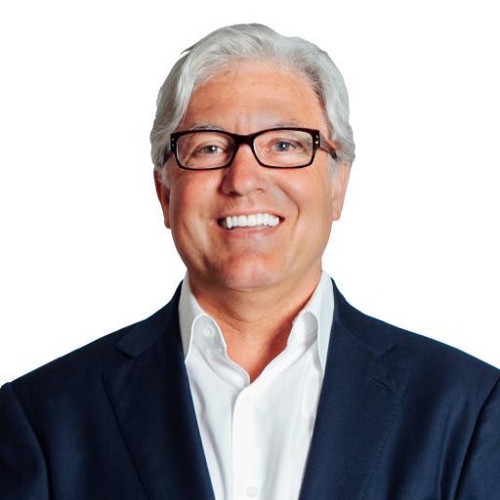On August 7th, Elon Musk sent a very short tweet, at 9:48 AM: “Am considering taking Tesla private at $420. Funding secured.” The tweet sent shockwaves throughout the financial sector, initially boosting Tesla’s stock price until the Nasdaq stopped trading and prompting a Security and Exchange Commission inquiry, per the New York Times.[i] As soon as the tweet hit, people and pundits began to ask, “What was he thinking?” An answer may be, he wasn’t.
On August 16th, the New York Times ran a highly personal interview that shed surprising light on Musk’s potential mindset about the tweet and subsequent events. Was the tweet foreshadowing some extraordinary business strategy or hinting at a complex funding formula or was there another reason? In the interview, an emotional Musk shared he’d been working up to 120 hours per week, saying, “There were times when I didn’t leave the factory for three or four days – days when I didn’t go outside” including spending his entire recent birthday working, “all night – no friends, nothing.”[ii]
When I was growing up, I remember hearing the phrase, “All work and no play makes Jack a dull boy.” According to Wikipedia, “it means that without time off from work, a person becomes both bored and boring. The exact origins of the phrase remain unclear, thought it was recorded as early as 1659.”[iii] As it turns out, working too much and sleeping too little may make Jack dull in another way. In a study, entitled “How Sleep Deprivation Affects Psychological Variables Related to College Students’ Cognitive Performance,” researchers discovered that “as expected, sleep-deprived participants performed significantly worse than the nondeprived participants on the cognitive task. However, the sleep-deprived participants rated their concentration and effort higher than the nondeprived participants did. In addition, the sleep-deprived participants rated their estimated performance significantly higher than the nondeprived participants did.”[iv] The sleep-deprived did worse because they were cognitively impaired and because they were cognitively impaired, they thought they did better. That’s a nasty cycle to be in.
On August 17th, according to a story in the New York Post, Arianna Huffington posted a letter to Musk saying, “Working 120-hour weeks doesn’t leverage your unique qualities, it wastes them,” and noting Huffington’s 2016 book, “The Sleep Revolution: Transforming Your Life, One Night at a Time.”[v] I remember reading that book; it affirmed so much of what I’d been seeing for years as a therapist. According to the Centers for Disease Control and Prevention, a third of adults don’t get enough sleep, which the CDC defines per the American Academy of Sleep Medicine and the Sleep Research Society as at least 7 hours of sleep per night for adults aged 18-60.[vi] In my private practice, the people I was treating for mental health issues were reporting much high percentages of disordered sleep. As the Harvard Medical School concludes, “Sleep and mental health are closely connected. Sleep deprivation affects your psychological state and mental health. And those with mental health problems are more likely to have insomnia or other sleep disorders.”[vii] Screening for sleep disorders and disordered sleep has become standard for all my patients.
On August 19th, at 2:32 AM, Elon Musk tweeted a response to Arianna Huffington, saying he just got home from his factory. “You think this is an option. It is not.”[viii] I’ve never seen this mindset turn out well. I think Mr. Musk needs to consider the law of diminishing returns, explained as “if one input in the production of a commodity is increased while all other inputs are held fixed, a point will eventually be reached at which additions of the input yield progressively smaller, or diminishing, increases in output.”[ix]
I think that point’s been reached. There may be miles to go in the Tesla journey, but my suggestion is to pull over immediately and get some sleep.
Authored by Dr. Gregory Jantz, founder of The Center • A Place of HOPE
and author of 37 books. Pioneering whole-person care nearly 30 years
ago, Dr. Jantz has dedicated his life’s work to creating possibilities
for others, and helping people change their lives for good. The Center •
A Place of HOPE, located on the Puget Sound in Edmonds, Washington,
creates individualized programs to treat behavioral and mental health
issues, including eating disorders, addiction, depression, anxiety and
others.
[i] https://www.nytimes.com/2018/08/16/business/elon-musk-interview-tesla.html
[ii] https://www.nytimes.com/2018/08/16/business/elon-musk-interview-tesla.html
[iii] https://en.wikipedia.org/wiki/All_work_and_no_play_makes_Jack_a_dull_boy
[iv] https://www.tandfonline.com/doi/abs/10.1080/07448489709595597
[v] https://nypost.com/2018/08/19/elon-musk-sleep-is-not-an-option/
[vi] https://www.cdc.gov/media/releases/2016/p0215-enough-sleep.html
[vii] https://www.health.harvard.edu/newsletter_article/sleep-and-mental-health
[viii] https://nypost.com/2018/08/19/elon-musk-sleep-is-not-an-option/
[ix] https://www.britannica.com/topic/diminishing-returns


